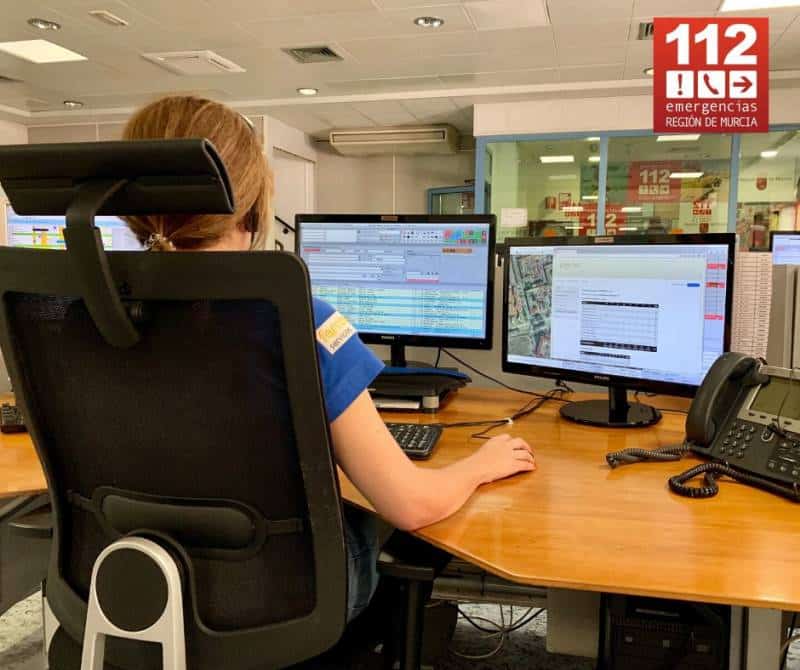The relatives of Yves José, a resident of Mazarrón, called 112 in Murcia fifteen times to ask for an emergency ambulance, because the man was suffering from respiratory failure. The ambulance took two hours to arrive and José, 52, died.
After the Murcian Health Service (SMS) compensated the children of the deceased with a payment of almost 74,000 euros, other calls that family members made to the Emergencies that day came to light.
In one of them, when the caller asks for speed, because Yves José is getting worse, the 112 operator responds: «Sir, like all the calls we receive. This is the emergency telephone number for the entire Region, okay?»
The 112 response generated a barrage of criticism and put the work of the people who answer the phone at the Emergency Coordination Centre in the spotlight.
They comprise of a staff of 60 workers, mostly women, with an average of twenty working in the centre every day, seven per shift. They are the first link in a chain that starts when someone picks up the phone, dials 112 and says they need help. Because they are the first contact with the emergency services, they often hear shouts and even threats.
Patients and their relatives get anxious if the ambulance takes time and the individual who takes the emergency call often pays for it.
“They make appeals to us, very upset people call us,” says Purificación Sánchez Moreno, supervisor of the Emergency Coordination Centre of the Region of Murcia since 1998, and currently president of the works council.
Just as the medical staff denounce that they suffer attacks, sometimes physical, by patients or their relatives, the 112 operators constantly suffer verbal attacks from people who, concerned and extremely nervous, ask for their help by phone. “We take the calls, we pass on the information we cannot do any more”, a statement in which Sánchez Moreno is absolutely clear, but she also emphasizes another problem: that of the site on which they operate.
Before being moved from their original location, the operators worked at the facilities on Avenida Mariano Rojas, from where “we could talk to the nurses, doctors, and 061 personnel.”
This allowed us to communicate face to face, to emphasise the importance if, for example, there were repeated calls notifying us that an ambulance had failed to arrive at a home.
“We are the only centre in Spain that is outside our Emergency Coordination Centre, which makes us a remote service, making it even more difficult to coordinate emergencies ,” says the president of the committee, who insists that “until July from 2020, we shared a room with 061, so there was much more coordination in health emergencies.
Being a remote centre results in “delayed incoming calls” as well as numerous “technical issues”.
Sánchez Moreno emphasizes that “our job is to receive the calls “, after which “we process the information and establish and manage the appropriate response, based on the priority and type of emergency”.
“But, since we are not in the Emergency Coordination Centre, it is very difficult to monitor and coordinate between the different agencies who might then be involved in the incidents,” she reiterates.
When the news of the SMS compensation to the family of Yves José was announced, many other people spoke of their dismay at the service.
“One would have to wonder how they could justify simply paying off the family instead of looking for those who were responsible, and applying the law, as they would with any ordinary citizen,” said a user on Facebook. “Losing a family member is priceless, what a shame the assistance we are able to provide with ambulances is inadequate,” said another follower on the social network, while another said that it is “a pity that someone has to die to see that changes are needed.” “These are the results a deterioration in our public health service,” wrote another Facebook user.





